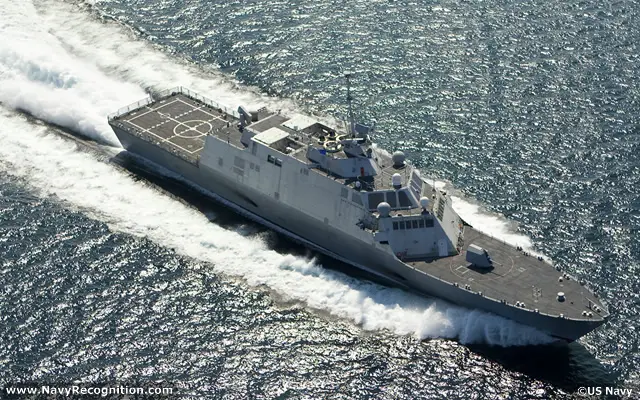Breaking news
Israeli Navy cancels plans to buy two Littoral Combat Ships, will get extra Sa’ar 4.5 corvettes instead.
| 2011
| |
|||
| a | |||
World
Naval Forces News - Israel |
|||
| Israeli Navy cancels plans to buy two Littoral Combat Ships, will get extra Sa’ar 4.5 corvettes instead | |||
Due
to budgetary constraints, the Israeli Navy has scrapped plans to purchase
two next-generation LCS vessels and is instead looking to increase its
fleet with smaller vessels. The Israeli Navy had originally decided
to purchase the US
Navy’s littoral combat ship, under development by defense contractor
Lockheed Martin, but backed away from the deal after the price
soared. It then looked into buying designs from Germany’s Blohm+Voss and having the vessels built by Israel Shipyards – a privately owned company based in Haifa that already builds the navy’s smaller Shaldag patrol boats – but a senior IDF officer involved in procurement plans said that a budget for that plan was also lacking. Instead, the Israeli Navy is now looking to order two new Sa’ar 4.5-class missile corvettes and to finance the deal by retiring two of its Sa’ar 4-class ships. The Sa’ar 4 ships have been in service since the 1970s. The Sa’ar 4.5 ship is slightly larger than the Sa’ar 4 enabling it to carry more weapons systems. Israel reportedly has eight Sa’ar 4.5-class ships which come equipped with Harpoon missiles, a 76mm gun and a Phalanx defensive system. The ships can also be equipped with Barak missile defense systems, depending on operational needs. |
|||
However the General Staff decided against budgeting the two new vessels – which would have cost around $500 million – and instead approved the smaller and cheaper expansion of the Navy’s fleet. The Navy has been playing an increasing role in IDF operations in recent years, whether operating alongside ground forces during Operation Cast Lead three years ago or against Iranian weapons smuggling in the Mediterranean and Red Seas. Over the weekend, for example, Sudanese media reported that an Israeli submarine recently participated in an Israeli Air Force bombing of weapons convoys in eastern Sudan. From: Jerusalem Post |




















